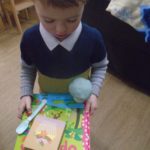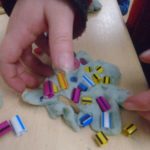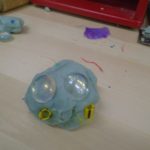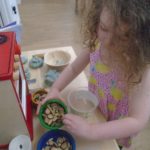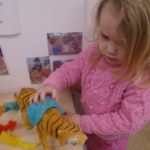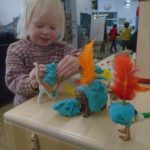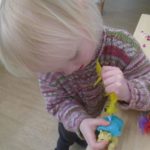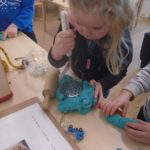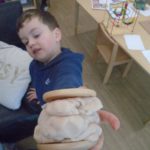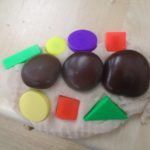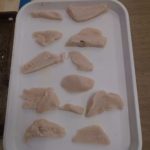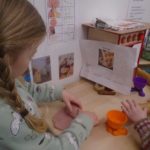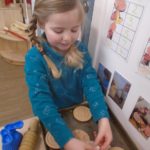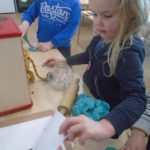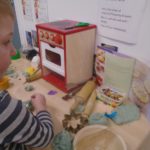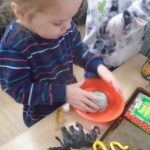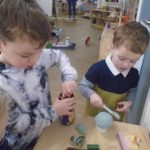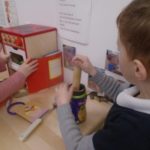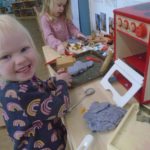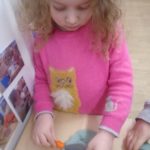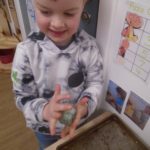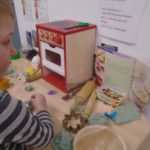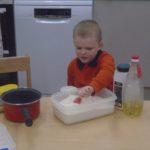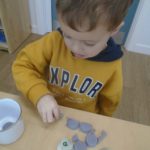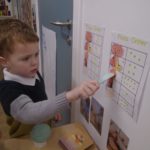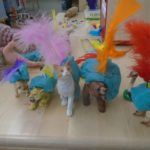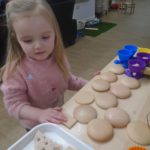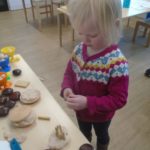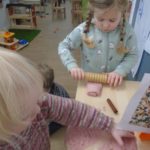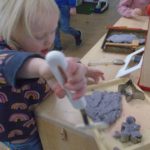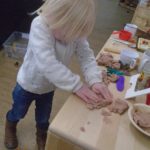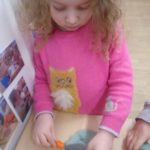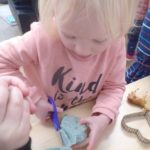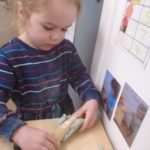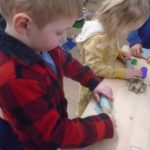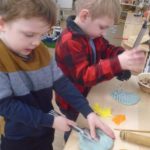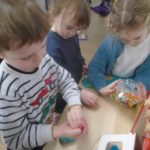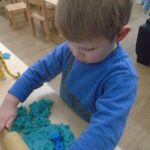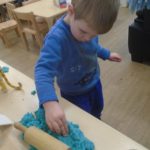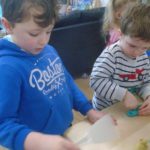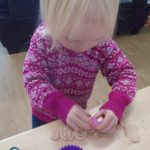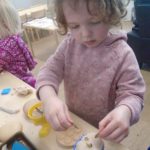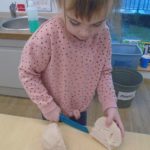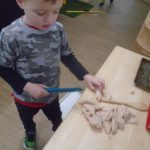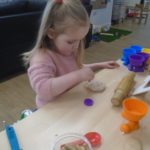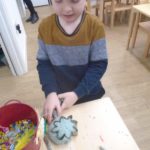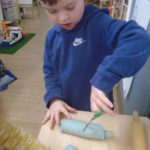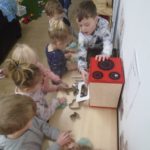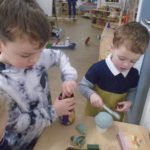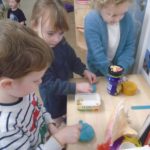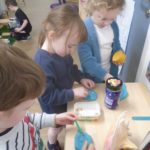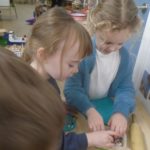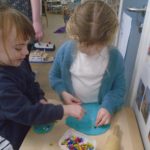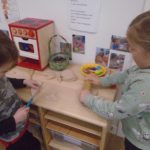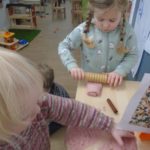This week’s blog is all about some of the things we learn when we play with playdough. Playdough is a very popular resource and, most days, at least a few of us will ask for help to make some. Making playdough together and using the dough as part of our play teaches us many things. Here are just a few!
Creativity and Imagination:
Playdough is great for developing our creativity and imaginations. We often pretend the dough is something else, such as food to serve our friends, which develops our symbolic thinking. There are no right or wrong ways to create with playdough which means we are free to experiment and to express our ideas. We can try different approaches and ideas and problem solve until we find something that works. These are important skills we will need in school. Playdough creations can range from simple sausages to more complex things such as feathered saddles for animals!
When we play with friends our creations often become more intricate and meaningful as we work together and explore ideas. Playing in this way is an important part of cognitive development and curiosity.
Literacy:
Using playdough is great for developing our literacy skills. Through our play we practice listening to and talking with friends and adults. Materials like playdough help us to build our vocabulary as we explain what we are doing and talk our actions out loud. For example saying “chop!” or “slice” or “cut” while performing the action. We also learn descriptive words as we explore the textures of playdough, such as “sticky”, “lumpy”, “smooth” and “gooey.” As we play we often comment about our work and ask each other questions such as “What is doo making?” “Can doo make me some fish and I will mak the chips?” Interactions like these help our language development. As we play together we learn to compare and contrast objects and experiences, for example “I’m made a lang sausage roll and doo is made a short een”, “I’m making a muffin so it’s big and round and doo make a flat pancake.” These types of experiences help us to learn new words and to communicate our thoughts and ideas which are skills that we need as we learn to read and write.
We use language to invent stories about our playdough creations. Often we use facts or ideas from books and familiar stories or real life events as we create. For instance over the past few weeks we have been pizza makers, cooks on boats, dads, mums and grannies providing meals. We have also been the “teachers” preparing lunch.
Creating “food” with playdough is a great way for us to develop reading skills as we use pictures and recipes for inspiration. We learn about recipes and “pretend” to read as we play. Using print as part of our play and developing an understanding that print carries meaning is a hugely important factor before we learn to formally read. Recognising environmental print is one of the first things we learn to do as readers.
Mathematics:
Playing with playdough is great for our mathematical development and thinking. Measuring and counting as we make playdough together, filling cups and comparing sizes of teaspoons and tablespoons are just some examples.
When we play with the dough we naturally note changes in shape and size as we comment on, compare, and contrast the objects they make “I made a triangle” and “Mine is a tiny ball and yours is big”. Often we notice who has more or less playdough too! During our play we often count how many pieces we are making or arrange our creations by size or colour.
Fine Motor Development:
We perform a lot of actions when playing with dough. These include rolling, poking, squishing, pushing, pulling, squashing, squeezing, chopping and cutting! As we perform these actions we build strength in our small hands and finger muscles and improve our dexterity. These muscles are essential for writing and for holding a pencil in pincer grasp and need to be strong. We also learn hand-eye coordination as we use our hands to shape the dough which is another essential component to writing.
Social and emotional development:
Creating with playdough helps us feel competent and increases our confidence as there are no rules and no right or wrong way to create. We develop thoughts such as “I’m good at rolling the dough” and pride in our accomplishments, “Hey look I made a right lot of fish on dis tray for everybody!” Using playdough as part of role play helps us to develop awareness of others and other perspectives as we discuss, collaborate and negotiate on what we are making to enhance our games.
Pounding, flattening, squeezing dough are also healthy and safe outlets for any extra energy and a good way for us to release strong feelings such as frustration.
We hope you’ve enjoyed seeing some of the ways we’ve been learning through our use of playdough and look forward to sharing more learning with you next week!

